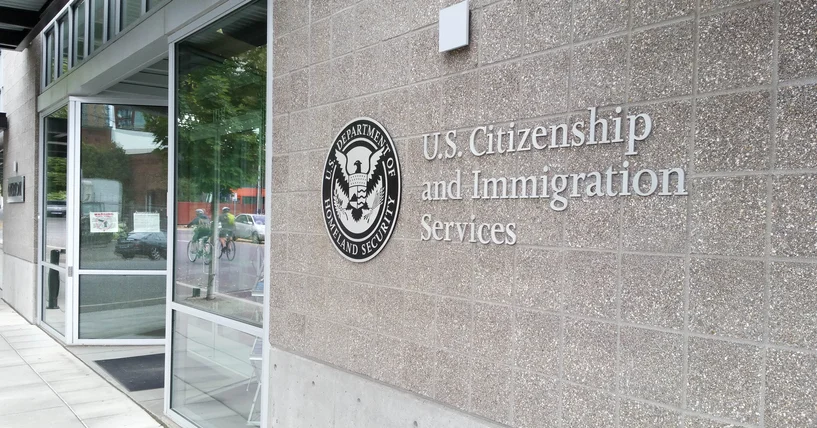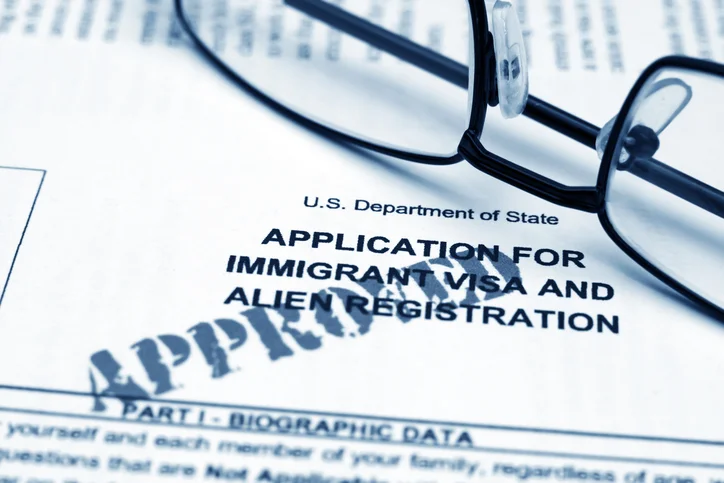The Department of State (DOS) has issued its August 2019 Visa Bulletin. Overall, there was significant retrogression in most categories this month. Employment-based category 1 (EB-1) for most nationals retrogressed by nearly two months, while for Chinese nationals it retrogressed by ten months, and there was no movement for Indian nationals. For the employment-based category 2 (EB-2), most nationals retrogressed by nearly two and a half years, while Chinese nationals advanced by two months, and Indian nationals advanced by only eight days. Lastly, the employment-based category 3 (EB-3) for most nationals retrogressed by nearly three years; Indian nationals retrogressed by three years and six months, but Chinese nationals moved forward by six months.
Read MoreUSCIS announced this week that it will begin redistributing pending naturalization and permanent residence applications from heavily back-logged field offices, such as San Francisco, Los Angeles, and New York, to field offices with smaller backlogs in order to minimize the wide disparity in processing times among the USCIS field offices. This means you could be called in for your interview at an office that is outside your area of residence.
Read MoreThe Department of State (DOS) has issued its July 2019 Visa Bulletin. Overall, there was little movement in most categories this month. For the EB-1 category, Chinese nationals advanced by 75 days while there was no advancement for EB-1 Worldwide and Indian nationals. For the EB-2 category, Chinese nationals advanced by three months while Indian nationals advanced by only five days. Lastly, EB-3 for Chinese nationals moved forward by three months and 17 days, while Indian nationals did not advance, and Philippine nationals are now current.
Beginning May 31, 2019, individuals applying for either nonimmigrant or immigrant visas to the United States will need to provide information on their social media accounts for the last five years. This includes their user names or handle for each platform, but not their passwords.
Read MoreEffective June 5, 2019, applicants for the annual Green Card lottery will be required to provide information from a valid, unexpired passport on their electronic visa entry form. The new passport requirement only applies to the principal applicant on the entry form, and not to his or her accompanying dependents. Failure to provide accurate information on the application form will result in disqualification from the lottery.
Read MoreUSCIS announced earlier this week that data entry for all H-1B cap-subject petitions selected in this year’s lottery has been completed. USCIS will now begin returning all H-1B cap-subject petitions that were not selected and will issue an announcement once it has finished returned all H-1B petitions. USCIS declined to provide a definite time frame for returning unselected petitions.
Read MoreThe recent transfer of more than 700 border agents from the US-Canada border to the US-Mexico border means travelers between Canada and the US should be ready for delays at immigration inspections. The Department of Homeland Security announced that the temporary transfer of border agents from the northern to the southern border is to assist with the influx of asylum-seekers from Central America.
Read MoreThe Department of State (DOS) has issued its June 2019 Visa Bulletin. Overall, there was a little movement in most categories this month. EB-1 for most nationals advanced by 52 days while there was no movement for Chinese nationals. EB-1 for Indian nationals retrogressed by a little over two years.
For the EB-2 category, Chinese nationals advanced by 78 days while Indian nationals advanced by only three days. Lastly, EB-3 for Chinese nationals moved forward by 24 days, while Indian nationals did not advance, and Philippine nationals advanced by five months.
The Department of Homeland Security will not be enforcing the termination of Temporary Protected Status (“TPS”) for nationals of Nepal and Honduras until further notice, following a court appeal similar to the case that challenged the terminations of TPS for Sudan, Nicaragua, Haiti, and El Salvador.
Each year, the U.S. Department of State releases statistics on visa refusal rates by country. It lists every country in the world in alphabetical order with its visa refusal rate. In reviewing the refusal rate for visitor visas (B-1/B-2) last year, I reorganized the information so that the countries are listed by highest to lowest rates of refusal. You can find the list here.
Read More









